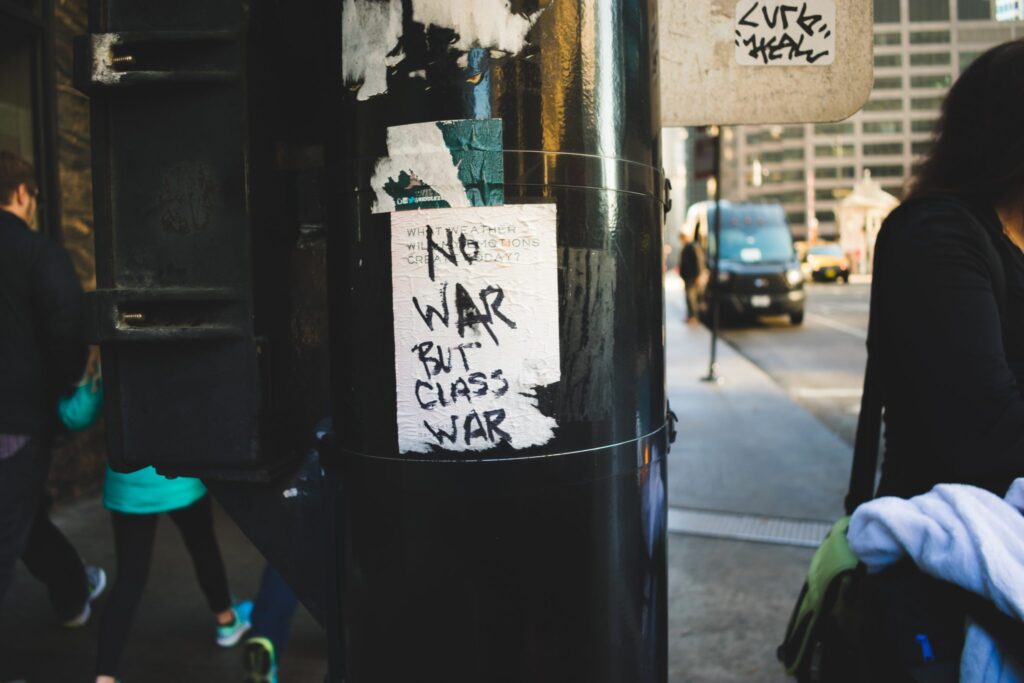February is over. But somehow that doesn’t seem like a good reason for me not to write you with some reflections about black history and its role in the larger conversation over race in America.
Week before last we released a podcast with Professor John Sybley Butler of 1776 Unites (to which I contribute) and the University of Texas. Professor Butler is a leading historian of black business in America, and argues that our understanding of black history and the road to progress is incomplete without a celebration of the long history of black entrepreneurship, self-sufficient communities, and triumphs over racism.
Next week we will be releasing an interview I conducted with Joy Donnell (a previous guest of the podcast) co-founder of the Center for Intersectional Media and Entertainment, who led us through an exploration of the historic racism of Hollywood, the dynamics of colorism, and the ways in which, in her view, the legacy of racism in the entertainment industry continue to shape the culture of the motion picture industry to this very day.
This week we released an interview with Lorenzo Murphy, once righthand man to one of the most powerful drug dealers in America during the crack cocaine era: Freeway Rick Ross. The crack era gave rise to the phenomenon of mass incarceration, the decline of inner-city life and a new age of distrust between African-American communities and police. Our current controversies over race cannot be understood without an understanding of what happened to America—and black America—during this particular period of time.
Butler, Donnell and Murphy, not to mention myself, all occupy different places on the spectrum of black experience in America. Our lives and studies tell different tales.
Professor Butler is a man from the south who, upon attending college in the 60’s was not the first or second but in fact the fourth generation of his family to do so. Poverty and marginalization scarcely touched his black experience…even in the days of Jim Crow. This leads him to reject narratives of victimhood and patronization.
Joy Donnell is the daughter of accomplished, socially ascendant parents from the south. She found success in Los Angeles and the 21st century world of media and public relations, but has endured the frustrations of lack of representation and subtle prejudice in the often largely white spaces she has integrated. This has spurred her passion for equity.
Lorenzo is from poverty in Los Angeles, grew up witnessing bitter violence from neighbors and police alike, and like disproportionately many in black America has a life in part defined by experience in the criminal justice system. This has set the stage for a story of both regret and redemption; a desire to criticize a country he feels took from him while giving back to communities he knows he took from.
There are those on the right and left who will seek to simplify the black experience to terms suitable to making all black life a didactic lesson in the callousness of conservatism or the reprobation of liberalism. But the black experience is complicated enough to merit understanding in all its dimensions. Black lives matter enough to view black life through prisms more concerned with truth than with the political interests of professional Democrats and Republicans.
This holds true for all groups of Americans. But having done only a little to explore black history during black history month, we nevertheless embrace the greater need to explore the dynamics of black life and history in America throughout the year and as a part of our greater body of discourse here at Braver Angels.
Why is this? The question of the black experience in America is vital to the larger conversation over America and race. The future of our understanding of the question of race is key to the future of America, just as it has always been.
At Braver Angels, let us have this conversation in a way that sets an example for America. Let us challenge each other towards truth with trust…and towards understanding with goodwill.
More on this in the weeks to come.
-John Wood Jr., National Ambassador




